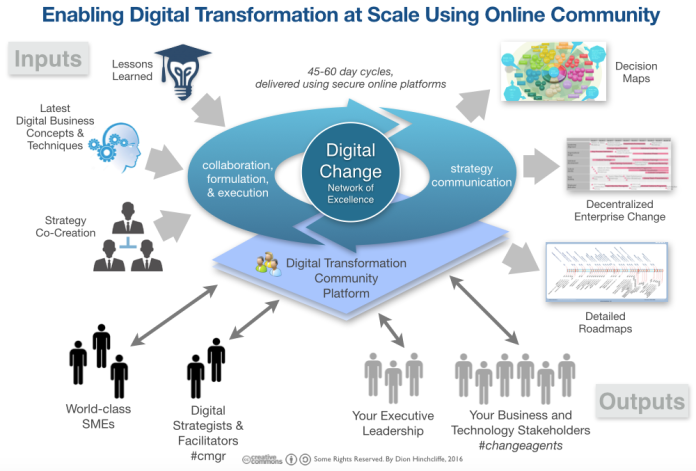Digital platforms are online places that promote online activity, communication, and business. These platforms use technology to connect users, companies, or groups. It allows them to communicate and work together online. Some examples of digital platforms are social media and e-commerce platforms. More specifically, E-commerce means online shopping, advertisements, telemarketing, business promotion, etc.
For the economy of underdeveloped countries, e-commerce is a cost- effective solution. It also helps overcome unemployment problems and cross-border goods availability.
Let’s learn how leveraging digital platforms for E-Commerce in low- income communities can elevate the economy.
Current Economic Challenges in Low-Income Communities
Low-income communities face several economic challenges that impact their growth and well-being.
1. Rapid Inflation
Inflation in such countries refrains people from buying their daily needs. They can’t keep up with the price hike at all.
2. Food Insecurity
Many families struggle to have enough food. This challenge makes it difficult for them to maintain a healthy and consistent diet.
3. Mounting Debt
People in low-income communities often have financial stress due to mounting debt. It limits their ability to invest in the future.
4. Lack of Capital Investment
They already face many financial challenges in their day-to-day life. It results in the inability to invest the capital needed to run a profitable business.
5. Inadequate Technology
These communities need access to modern tools and technology. That results in hindering progress and limiting educational opportunities and better job prospects. Thoughtful solutions and support are needed to overcome these challenges. Thus, underdeveloped countries can support their economy in the long run.
The Role of Digital Platforms in Economic Development
Digital platforms play significant roles in growing economies in various cost-effective ways.
1. Connecting to More Markets with E-Commerce
E-commerce, a part of digital platforms, helps small businesses reach customers globally. It ultimately makes trade and growth easier without expensive physical stores.
2. Supporting New Businesses Online
Digital platforms offer a low-cost beginning for entrepreneurs to display products or services. It encourages new businesses to grow without the high costs of traditional storefronts.
3. Including More People in Digital Finance
E-commerce platforms allow for cost-effective financial transactions. It brings banking services to people in communities with fewer resources. That enables them to participate in the economy without needing traditional banking infrastructure.
4. Making Communication Easier and Affordable
Digital platforms, including e-commerce websites, help businesses, suppliers, and customers communicate more efficiently. It also does it at a lower cost, streamlining operations and reducing the need for expensive physical interactions.
5. Learning New Skills Online
Online platforms offer cost-effective opportunities for skill development. It empowers individuals economically, besides traditional education.
6. Creating Jobs Online
The digital economy, including e-commerce platforms, opens up job opportunities. It expands, allowing people to work remotely or start online businesses. That’s also without the high costs of physical establishments.
Barriers to E-Commerce in Low-Income Communities
Several barriers hinder the adoption of e-commerce in low-income communities, which limits their ability to leverage digital platforms for economic development.
1. Limited Internet Access
Many low-income communities need consistent and affordable Internet access. That prevents dwellers from engaging in online commerce.
2. Technological Literacy Challenges
Limited familiarity with technology and digital tools in low-income communities limits online participation. As a result, people need to be made aware of and active in e-commerce.
3. Financial Constraints
Affordability issues for mobile devices or other technology are another barrier. It prevents individuals in low-income areas from accessing devices and internet services. So, they can’t adequately engage in e-commerce.
4. Trust and Security Concerns
Relying on something online like e-commerce is questionable for people. Because they need to gain knowledge, it also makes them stay away from e-commerce.
5. Inadequate Infrastructure
There needs to be more logistical and transportation infrastructure for goods to be delivered. That’s why e-commerce does not efficiently work in those areas.
6. Language and Cultural Barriers
Differences in language and cultural understanding create challenges in navigating and using online platforms for e-commerce purposes.
7. Limited Access to Banking Services
Lack of access to traditional banking services in low-income communities can lack the ability to make and receive digital payments, a crucial aspect of e-commerce.
Strategies for Leveraging Digital Platforms in Low-Income Communities
Unlocking the potential of digital platforms in low-income communities requires thoughtful strategies.
1. Understanding Digital Skills Gaps
Start by checking what digital skills people have and where they need help. Look at internet access, education quality, and how well people know about technology.
2. Friendly Rules for Digital Business
The government should create and execute rules that help small businesses, new businesses, and people from other countries efficiently use digital platforms.
3. Supporting Startups
Encourage new businesses by creating specific laws that help startups grow in the digital world.
4. Better Technology Infrastructure
Make sure the government, alone or with private partners, improves the technology infrastructure for information.
5. Creating a Safe Business Environment
Make a place where businesses feel safe and happy to invest in digitalthings by giving them benefits. This includes imparting cyber security knowledge and adding it to the infrastructure.
6. Stronger Local Banks and Small Loans
Make local banks stronger and support small loans to help people in the community get into digital businesses.
Conclusion
In conclusion, digital platforms, especially e-commerce, hold immense potential for boosting small business growth. The power of online platforms in driving success for small businesses is huge. With the help of all stakeholders in prioritizing and supporting initiatives in online advertising, we can rapidly outgrow the economic barrier of low income through e-commerce.




